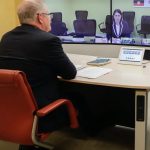Property levy threatened in new review
The New South Wales Government is reviewing the emergency services funding system in a bid to make it more efficient. Brian McKinlay looks at the review from the perspective of the Rural Fire Service.
The NSW State Government is undertaking a review of the method of funding fire and emergency services. This review has the potential to have an enormous impact on the way in which the NSW Rural Fire Service (RFS) is funded and how it operates.
One of the proposals outlined in the ‘Funding Our Emergency Services’ Discussion Paper released by the government is to introduce a property levy to replace the current private and public funding mixture of the services.
As the President of the NSW Rural Fire Service Association (RFSA), an Association that represents and is informed by the volunteers and salaried staff of the 70,000 plus members of the RFS, I am concerned about many aspects of the Discussion Paper.
Whilst I recognise the intent of the review is to pose the question for change, the paper does not reflect either the true budgetary impacts or even more importantly, the elements of the RFS’s operating environment that have resulted in the development of the RFS into a recognised world leader in its field.
It also fails to raise the changes in attitudes and relationships across the emergency services sector, local government, volunteers and the general public and how they may impact on the support currently provided to the RFS and on the services, they in-turn provide, to the community.
Whilst there is room for improvement with the current system, it is primarily fair and equitable due to local input, its community base, and being based on the real value of the assets protected, not just the unimproved land value.
The need for an equitable level of contribution from the beneficiaries of fire and emergency services is one of the main thrusts of the Discussion Paper. Whilst it is laudable to seek this type of outcome, such a target is unachievable in reality.
The net effect of the Discussion Paper’s proposal is that residential and rural property owners will be unfairly burdened with a new tax or property levy.
One of the primary arguments for the change is that household insurance policy holders are subsidising the cost of emergency services for those within the community who choose not to insure. I don’t believe this is a valid argument – when 95 percent of homeowners, 100 percent of strata units, 83 percent of small business and nearly 100 percent of large businesses are insured in NSW.
The RFSA favours the retention of the current contributory funding model for the RFS and does not support the property-based levy proposed by the Discussion Paper.
There is never a right time to cut funding to a State’s emergency services primarily to meet fiscal needs. Treasury will be the only winner and the community and Emergency Services, the loser.
Nor is it the time to make changes to the manner in which our State’s Emergency Services are funded. NSW needs to learn from other states as to the performance and consequences of a property based levy to adequately fund emergency services and how it can change the nature of the relationship between the community and volunteers, and the morale of volunteers themselves.
In his evidence to the 2009 Victorian Bushfires Royal Commission, Major General Jim Molan stated “It seems to me that many of the emergency-like situations that Australia regularly faces, in the military and civilian worlds, are only “emergencies”, and only become “disasters’ and “Tragedies”, because we do not manage all aspects of them intelligently over time, and did not invest sufficient resources. Because we did not prepare, we then expect people on the day to work miracles that may be beyond them.”
With concern that NSW is facing possibly its worst fire season in 40 plus years, I hope the State Government heeds the wisdom of Major General Molan’s words.
Visit the RFSA website for more information on the Association’s response to the Government’s Discussion Paper.
Brian McKinlay is President of the NSW Rural Fire Service Association. He joined the RFS in 1962 when he became a member of the Berowra Bushfire Brigade. He has been awarded Life Membership of this brigade and also of Grose Vale RFB, which he joined in 1978. Brian is also a member of the Council of Emergency Volunteers and the Independent Hazard Reduction Audit Panel.












